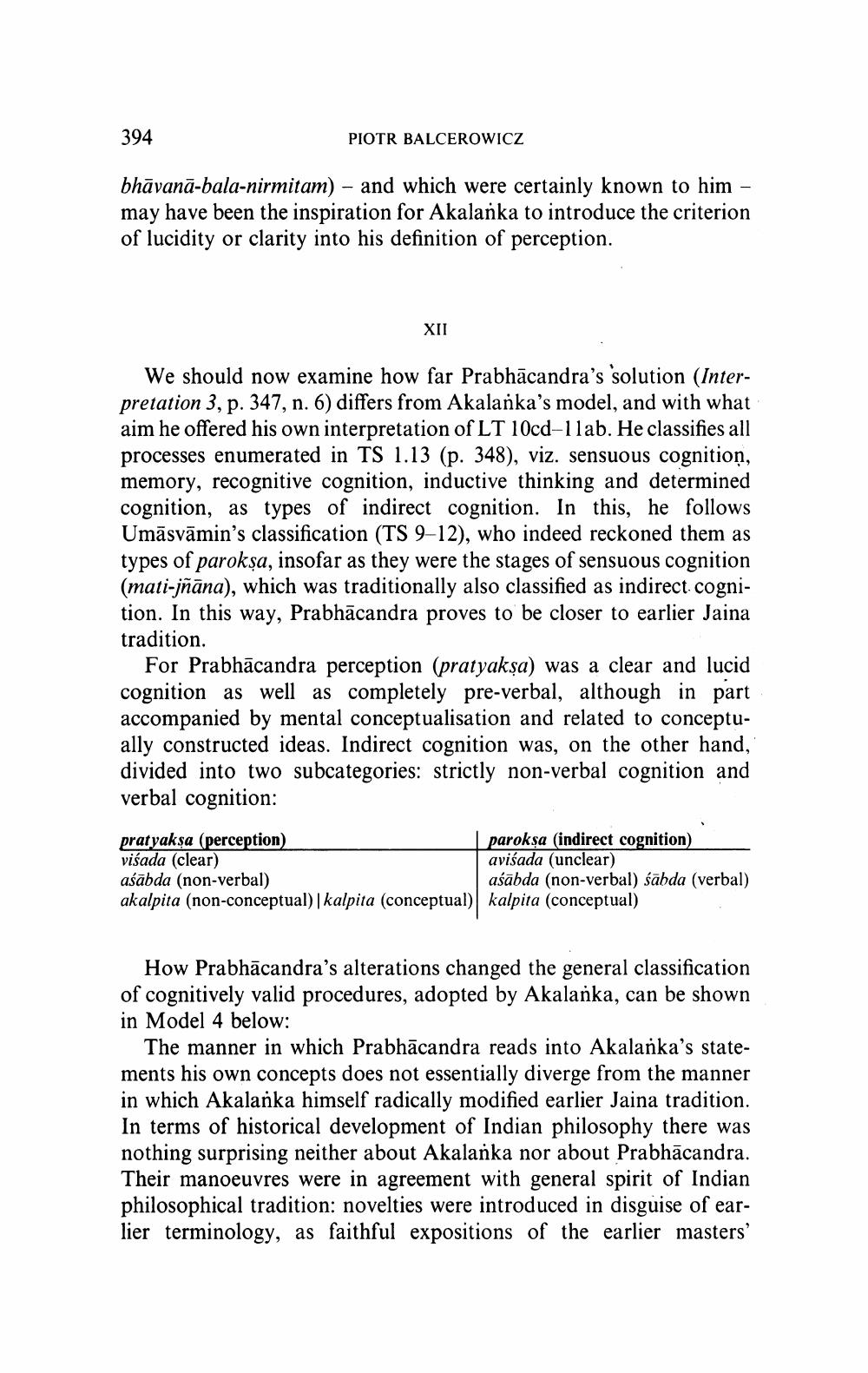________________
394
PIOTR BALCEROWICZ
bhāvanā-bala-nirmitam) - and which were certainly known to him - may have been the inspiration for Akalanka to introduce the criterion of lucidity or clarity into his definition of perception.
XII
We should now examine how far Prabhācandra's 'solution (Interpretation 3, p. 347, n. 6) differs from Akalanka's model, and with what aim he offered his own interpretation of LT 10cd-11ab. He classifies all processes enumerated in TS 1.13 (p. 348), viz. sensuous cognition, memory, recognitive cognition, inductive thinking and determined cognition, as types of indirect cognition. In this, he follows Umāsvāmin's classification (TS 9-12), who indeed reckoned them as types of parokşa, insofar as they were the stages of sensuous cognition (mati-jñāna), which was traditionally also classified as indirect cognition. In this way, Prabhācandra proves to be closer to earlier Jaina tradition.
For Prabhācandra perception (pratyakşa) was a clear and lucid cognition as well as completely pre-verbal, although in part accompanied by mental conceptualisation and related to conceptually constructed ideas. Indirect cognition was, on the other hand, divided into two subcategories: strictly non-verbal cognition and verbal cognition:
pratyaksa (perception) visada (clear) aśābda (non-verbal) akalpita (non-conceptual) | kalpita (conceptual)
paroksa (indirect cognition) avisada (unclear) aśābda (non-verbal) sabda (verbal) kalpita (conceptual)
How Prabhācandra's alterations changed the general classification of cognitively valid procedures, adopted by Akalanka, can be shown in Model 4 below:
The manner in which Prabhācandra reads into Akalanka's statements his own concepts does not essentially diverge from the manner in which Akalanka himself radically modified earlier Jaina tradition. In terms of historical development of Indian philosophy there was nothing surprising neither about Akalanka nor about Prabhācandra. Their manoeuvres were in agreement with general spirit of Indian philosophical tradition: novelties were introduced in disguise of earlier terminology, as faithful expositions of the earlier masters'




